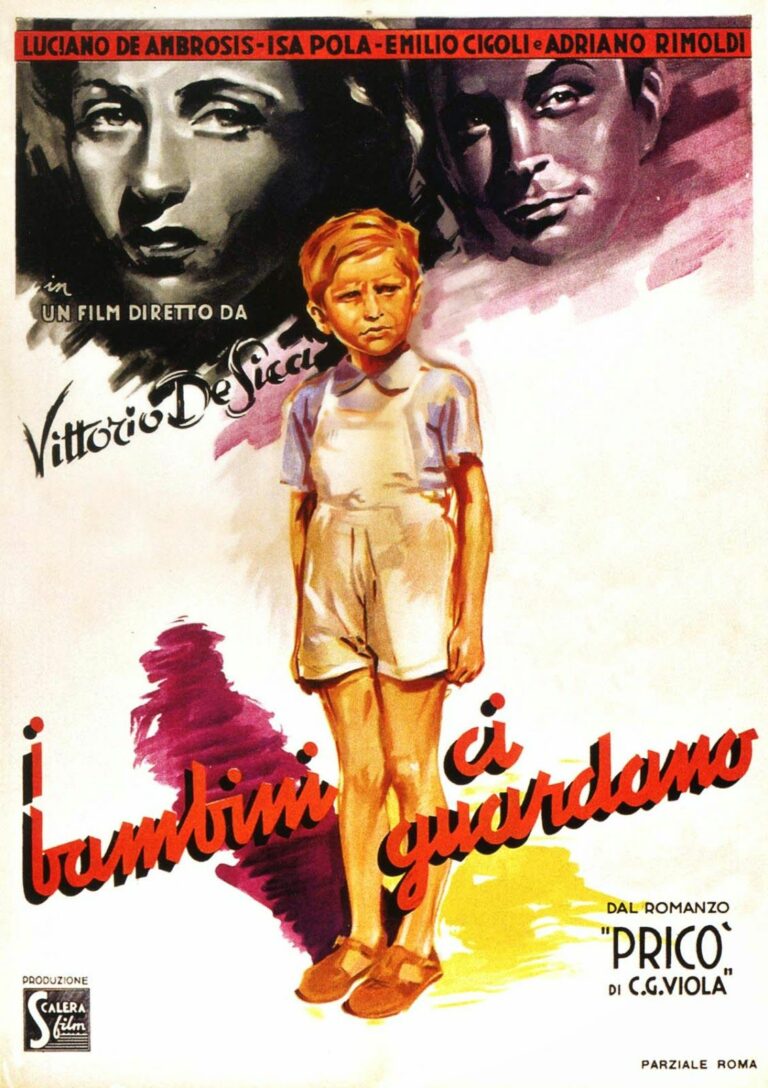
The story of Nights of Cabiria begins with an ironic contrast between love and betrayal. Cabiria (played by the effervescent Giulietta Masina), a cheerful and spirited woman, stands on a riverbank with her boyfriend Giorgio (Franco Fabrizi). In a shocking twist, Giorgio shoves her into the river, stealing her purse full of money. Cabiria, unable to swim, nearly drowns but is rescued by a group of local boys and revived by kindhearted villagers nearby. Despite their life-saving efforts, Cabiria responds with disdain and immediately resumes her search for Giorgio, demonstrating a mixture of pride, naivety, and resilience.
Cabiria returns to her modest home to find that Giorgio has vanished. Bitterness consumes her, and even her well-meaning neighbor and best friend Wanda (Franca Marzi) cannot console her. Cabiria continues her work as a prostitute, maintaining her spirited demeanor despite her struggles. One night, outside a lavish nightclub, she witnesses a fight between famous film star Alberto Lazzari (Amedeo Nazzari) and his glamorous girlfriend. The disheveled and diminutive Cabiria stands in stark contrast to the mink-clad girlfriend. To her surprise, the newly single Lazzari invites her out, taking her to another club and later to his opulent home. For a brief moment, Cabiria glimpses the high life, but when Lazzari’s girlfriend returns unexpectedly, Cabiria is awkwardly hidden in the bathroom and her dreamlike evening dissolves into disappointment.
The narrative takes a contemplative turn as Cabiria encounters a church procession. While her colleagues mock the scene, Cabiria is drawn to the ceremony’s solemnity and prays for a chance to change her life. Later, she observes a stranger feeding the poor living in nearby caves, a quiet act of kindness that profoundly moves her. Though moments like these offer hope, Cabiria remains ensnared in the unpredictability of her world.
Cabiria’s yearning for love and stability reaches its height during a visit to a magic show. Hypnotized by a magician (Aldo Silvani), she reveals her dream of being married and happy, much to the audience’s amusement. Feeling humiliated, she storms out, only to meet Oscar (François Périer), a man from the audience who empathizes with her plight. Their initial encounters are marked by Cabiria’s suspicion, but Oscar’s persistence and apparent sincerity win her over. Over a whirlwind courtship, she falls deeply in love, sells her house, and withdraws her savings to begin a new life with him.
Tragically, her trust is once again betrayed. While walking near a cliff, Oscar reveals his true intentions. Realizing he plans to rob and kill her, Cabiria collapses, hurling her purse at his feet in desperation. Oscar takes the money and leaves her sobbing and broken.
The film’s iconic closing sequence brings a ray of hope. Cabiria, devastated, stumbles back toward town. Along the way, she encounters a group of joyous young people on scooters, playing music and dancing. Their infectious energy slowly lifts her spirits. In the final moments, Cabiria smiles through her tears, embodying an indomitable resilience and a fragile yet enduring hope for the future.
Reviews of Nights of Cabiria
Critical Acclaim:
Widely regarded as one of Federico Fellini’s masterpieces, Nights of Cabiria earned the 1957 Academy Award for Best Foreign Language Film. Critics lauded Giulietta Masina’s performance, with Roger Ebert describing her portrayal of Cabiria as “one of the greatest performances in the history of cinema,” noting her ability to convey vulnerability, joy, and heartbreak in equal measure. Pauline Kael similarly praised Masina as “an actress of extraordinary emotional range and charm,” elevating Cabiria to an unforgettable cinematic heroine.
Themes and Emotional Resonance:
The film’s blend of heartbreak and hope resonated deeply with audiences. The New York Times called it “a tender, melancholy parable of human resilience,” emphasizing the universality of Cabiria’s search for love and dignity. Many critics highlighted Fellini’s empathetic direction, which allows even the bleakest moments to carry a sense of redemption.
Cinematic Legacy:
Fellini’s use of stark contrasts—between glamour and poverty, joy and despair—has been celebrated as a hallmark of his genius. The final scene, in particular, remains one of the most iconic in film history. As The Guardian notes, “Cabiria’s smile through her tears is a cinematic moment of pure grace, capturing the beauty of a soul that refuses to give up.”
In short, Nights of Cabiria is a poignant exploration of resilience and the human condition, carried by Masina’s unparalleled performance and Fellini’s compassionate storytelling.






